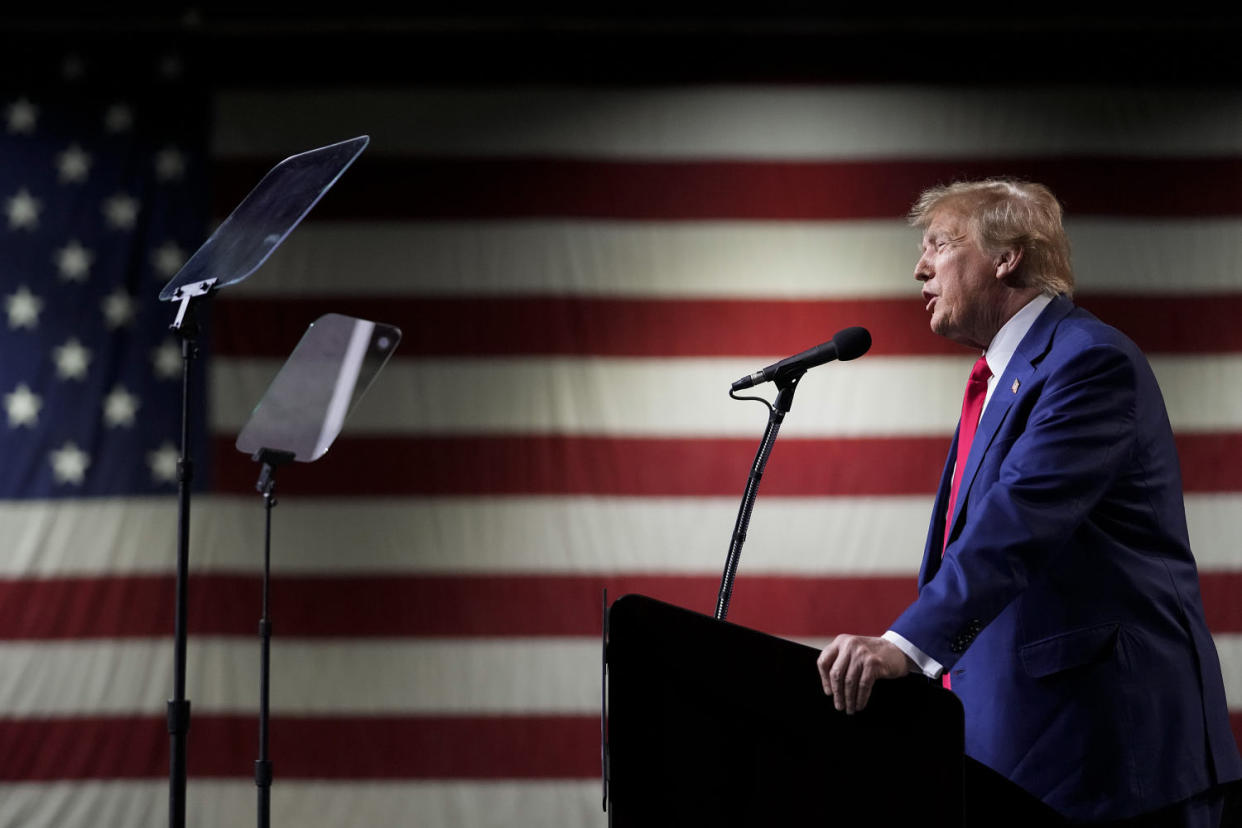Trump asks appeals court to toss federal election interference case
Former President Donald Trump on Saturday demanded that the D.C. Circuit U.S. Court of Appeals toss the federal election interference case against him, arguing again that presidential immunity protects him from prosecution.
“The structure of our government, the text of the Constitution and its early commentators, common-law immunity doctrines, our political history, the Supreme Court’s analogous immunity doctrines, and the policy considerations rooted in the separation of powers all dictate that no President, current or former, may be criminally prosecuted for his official acts unless he is first impeached and convicted by the Senate,” Trump lawyers wrote in a brief to the D.C. Circuit.
“Nor may a President face criminal prosecution based on conduct for which he was acquitted by the U.S. Senate,” he added. “The indictment against President Trump is unlawful and unconstitutional. It must be dismissed.”
In a post to his Truth Social website on Sunday, Trump said that his efforts to overturn Joe Biden’s victory were part of his “duty as President.”The Supreme Court on Friday sidestepped special counsel Jack Smith’s request asking the justices to quickly decide whether Trump has broad immunity for his attempts to overturn his 2020 election loss amid his presidential term.

Because the Supreme Court decided against intervening in the case, the D.C. Circuit will hear oral arguments on Jan. 9.
After that court rules, the Supreme Court could swiftly decide whether to take up the case.
In his request to the Supreme Court this month, Smith said the case “presents a fundamental question at the heart of our democracy: whether a former President is absolutely immune from federal prosecution for crimes committed while in office.”
Trump’s lawyers pushed back in court papers, arguing that Smith had given “no compelling reason” why the Supreme Court should immediately step in ahead of the appeals court.
Reacting to the Supreme Court’s move on Friday, Trump slammed Smith’s initial request for the court to step in, decrying it as a “desperate attempt to short circuit our Great Constitution” in a post to his Truth Social platform.
In his post, Trump also said that he was “looking forward” to arguments before the appeals court next month while reiterating baseless claims about the 2020 presidential election.
Earlier this month, U.S. District Judge Tanya Chutkan, who is presiding over the election interference case, denied Trump’s motion to dismiss his indictment on presidential immunity and constitutional grounds. The case is on hold while Trump appeals the decision.
Trump’s lawyers argue that his role in questioning the result of the election was within the “outer perimeter” of his official responsibilities as president, citing a 1982 Supreme Court ruling about presidential immunity. Therefore, under Supreme Court precedent, Trump is immune from prosecution, his lawyers argue.
Trump’s lawyers also point to the Senate’s acquittal of Trump following impeachment proceedings over his role in events that led to the Jan. 6, 2021, attack on the U.S. Capitol, arguing that the former president can’t face separate prosecution for the same actions.
Smith has argued that Trump’s attempts to overturn the election were unrelated to his official duties as president and that the Constitution’s language on impeachment permits separate criminal proceedings even if the president is acquitted.
A federal grand jury in Washington indicted Trump on four charges in August: conspiracy to defraud the U.S., conspiracy to obstruct an official proceeding, obstruction, and conspiracy against the right to vote and to have one’s vote counted. Trump pleaded not guilty at his arraignment hearing.
Trump faces three other criminal prosecutions but remains the front-runner in the polls for the Republican nomination.
